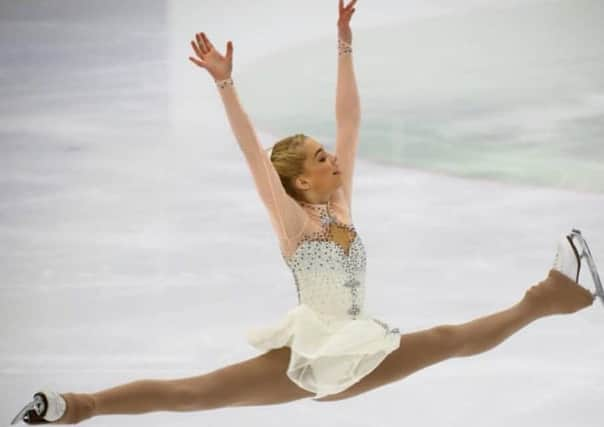Simon and Debi Briggs continue to mould figure skating champions in Dundee but lack of funding a major hurdle


Their home rink, in Sunderland, had closed down and the pair had just two days before they took up residence in the newly completed Dundee Ice Arena.
“We needed somewhere to go and the timing was perfect,” remembers Debi.
Advertisement
Hide AdAdvertisement
Hide AdNow the husband and wife coaching team have 35 national champions under their belt and currently coach the top three women’s figure skating competitors in the UK – as well as the Irish men’s champion and a number of other elite athletes in the sport, including the UK junior silver medallist.
The Dundee Ice Arena, on an industrial estate on the edge of the city and a replacement for the old Kingsway rink which was demolished in the mid 1990s, has become a Scottish hub for excellence in the sport.
Competitors from all around the UK travel long distances to train with the pair of renowned coaches and claim Dundee as their home rink.
One of their most successful athletes, Danielle Harrison, 18, now lives in Dundee full-time, but spent four years from the age of ten travelling from Basingstoke every weekend with her father to train with the Briggs, sleeping in the car after school on the eight-hour drive and arriving in time to train on Saturday morning.
“We used to stay in a Travelodge, which my dad booked up for every Saturday night a year in advance,” says Harrison, who was British champion in the 2015-2016 season, a title which her rink-mate, Natasha McKay, has held for the past two years.
The Briggs’ elite group train for four hours from 6am every morning between Wednesday and Sunday. They also fit in extra training sessions on weekday evenings, as well as off-ice conditioning such as pilates and calesthenics.
Yet, with no funding for their sport, they are forced to support themselves through part-time jobs and paid coaching of younger skaters. McKay and her junior team-mate Anastasia Vaipan-Law, who is hoping to claim the British junior title this year, both work shifts in TK Maxx, while Karly Robertson, who has come first or second at the British National Championships ten times in the past 11 years, has a job at Tesco.
In the years after the retirement of world famous Olympic ice dancers Jayne Torvill and Christopher Dean, with no international champions in any discipline of ice skating in the UK, sponsors dropped away.
Advertisement
Hide AdAdvertisement
Hide AdSimon, who was a technical expert on the judging panel at last year’s Olympic Games in South Korea, is hoping that the group might be able to attract sponsorship in the future, estimating that it costs the skaters around £30,000 each a year to train and compete.
“It is very difficult,” he acknowledges. “The lack of international champions means no TV coverage, which means no sponsors.”
Although most programmes for the Dundee skaters are choreographed by Dundee-based coach Andrew Smith, the group made a decision to have a routine specially created for McKay by internationally renowned choreographer Benoit Richaud at a cost of £3,000.
Skaters have to perform two programmes in each competition – a short programme and a longer free skate – but only the top 24 competitors after the short programme qualify to even enter the free skate in international competitions such as the European Championships.
“We had to make a decision,” added Simon. “Natasha has had a good couple of years, so we decided to go for it. She couldn’t afford to pay for both programmes, so we opted for the short. That way, she has the best chance of qualifying for the free.”
Irish men’s figure skating champion Conor Stakelum, from Dublin, who moved to Dundee specifically to train with Simon and Debi, gets financial support from his own figure skating national body for travel and hotel accommodation at competitions.
“Life is slightly easier for Conor,” says Simon. “It costs the girls £1,000 per competition and they get no support.”
In the US and some other countries, the skating governing body pays for costs for international competitors.
Advertisement
Hide AdAdvertisement
Hide Ad“There are other countries where skaters have to fund themselves, but we are the worst, I think,” says Debi.
Most of the team are already planning ahead, with ambitions to become choreographers or high level coaches – or in the case of Stakelum, returning to his degree subject of microbiology once his skating career comes to an end.
Last month, McKay won the Golden Bear event in Zagreb with a personal best and the world championship qualifying score of 156.25. Minimum qualifying scores at specific competitions are necessary for any skater to take part in World and European events.
“We are all really good friends, but once we’re on the ice we want to win,” says Harrison.
“We just go out there and skate as well as we can.”